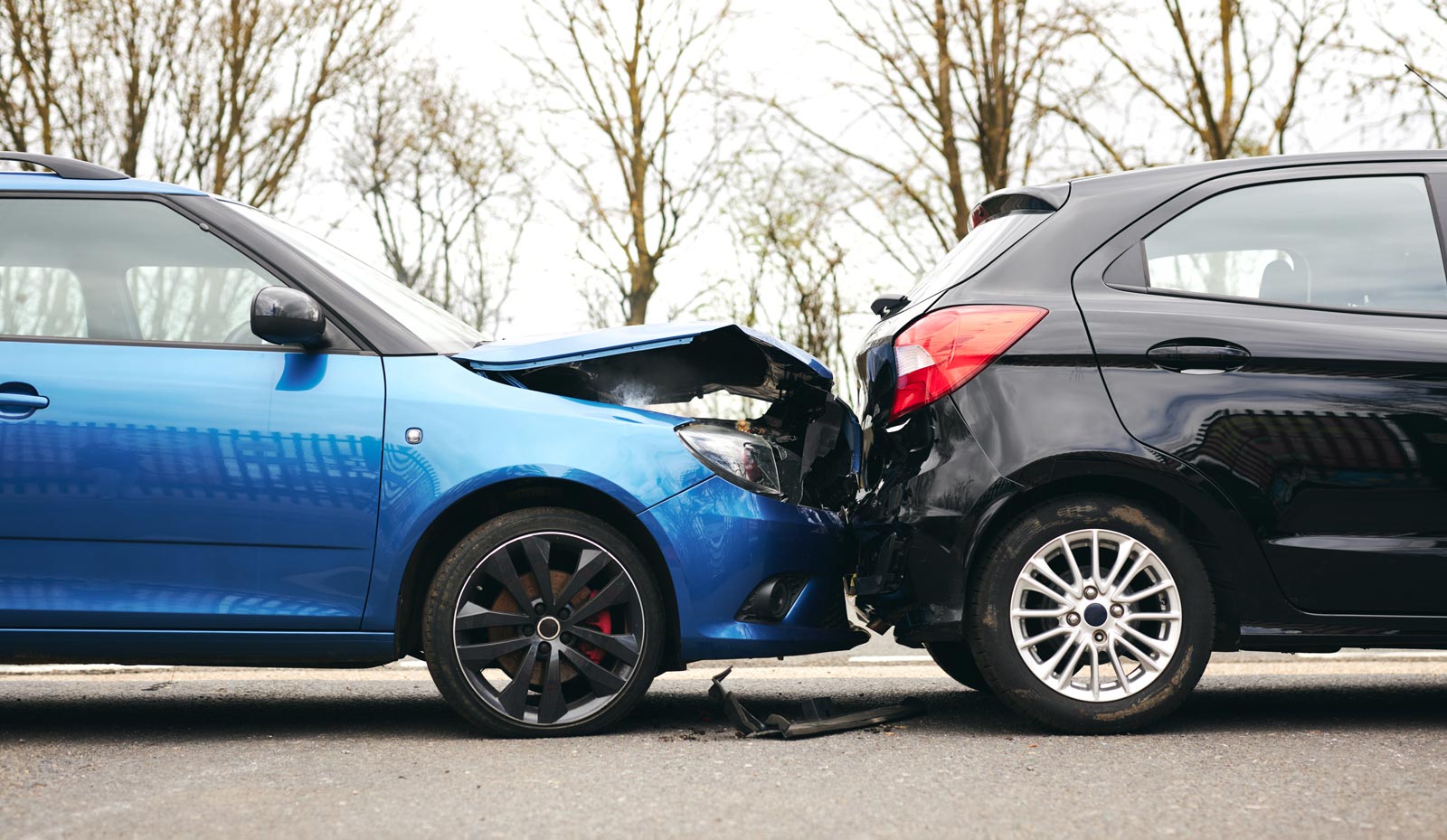More than 150 people die every day in the United States from wounds that include traumatic brain injuries (TBIs). In total, TBIs are associated with nearly 3 million emergency department visits, hospitalizations, and deaths each year in America.
This is a growing problem, and car accidents are a major contributing factor. Car crashes are among the three most common causes of TBIs and TBI-related fatalities. For those between the ages of 5 and 24, car accidents are the number one cause of TBIs.
In this article, I will discuss some of the most important information you need to know about TBIs if you or someone you love has been involved in a car crash.
What Is a Traumatic Brain Injury (TBI)? And How Do TBIs Happen in a Car Crash?
TBIs are complex injuries caused by a wide variety of circumstances. In some cases, TBIs result from major injuries like a blow to the head or a penetrating head injury, which is where an object breaks through the skull and the outer protective layer of the brain.
In a vehicle crash, every loose object becomes a projectile, and drivers or passengers can suffer a TBI when one of those objects collides with their head or when their head strikes a window, the steering wheel, or the dash.
But TBIs can also result from something as simple as a bump or jolt. Even if a person’s head never touches another object, the force of a vehicle impact can actually cause their brain to collide with the inside of their own skull.
In this way, what seems like a minor fender bender can lead to a serious concussion. A victim might have no outward signs of injury, but they may still be suffering from the effects of a traumatic brain injury.
Understanding the Different Categories of TBI
Regardless of the cause, three major classifications of TBI exist:
- Mild traumatic brain injuries, which are also commonly called concussions, minor head injuries, or minor brain injuries
- Moderate traumatic brain injuries
- Severe traumatic brain injuries
Doctors use a wide variety of diagnostic tools and criteria to determine the severity of a TBI. These tools and criteria may include brain scans, how long someone loses consciousness, the severity of post-traumatic amnesia (PTA), coma rating scores, and more.
Brain injury researchers are developing new tools to more accurately diagnose the severity of TBIs, such as a saliva test that detects specific protein levels associated with brain injuries. Unfortunately, TBIs are still difficult to accurately diagnose, and outcomes are hard to predict.
For example, someone with a severe TBI may fully recover from their injury in a short time, while someone with a mild TBI may have symptoms that last a lifetime. Some mild TBIs cannot even be detected with a normal imaging scan such as an MRI.
What Are the Symptoms of Traumatic Brain Injuries?
Brain injury symptoms vary widely from person to person. However, common symptoms fall into four major categories:
Thinking and Remembering Symptoms
Many TBI victims suffer from problems related to thinking and remembering after their injury. For example, they may:
- Have difficulty concentrating or thinking clearly
- Struggle to remember things, especially new information
- Feel like their thinking has been slowed down
- Suffer from reduced awareness of what’s going on around them
- Get lost or confused more easily
- Have a decreased attention span
Physical Symptoms
Not all TBI victims have outward physical symptoms of their brain injury, but when they do, they may:
- Experience nausea and/or vomiting, especially during the time shortly after their injury
- Have headaches or migraines
- Become more sensitive to lights and/or noises
- Suffer from dizziness or other balance problems
- Experience blurred or double vision, persistent ringing in the ears, and/or diminished sense of smell or taste
- Suffer from increased fatigue and/or weakness
- Acquire verbal problems, such as having trouble speaking clearly or expressing themselves coherently
Emotional and Mood Symptoms
While all the symptoms of head injuries are difficult to deal with, some of the most frustrating are the ones related to emotions and mood. For example, TBI victims may:
- Become more irritable, emotional, and/or nervous
- Experience increased anxiety
- Suffer from increased sadness or even depression
- Have mood swings
- Feel less motivated and more apathetic about their day-to-day tasks or even major milestones they would normally celebrate
- Act out in anger or frustration
Sleep Symptoms
Sleep symptoms technically fall into the “physical” category, but they are worth noting on their own because they can be very disruptive. For example, the victim may:
- Have trouble falling asleep and/or getting up
- Suffer from sleeplessness or even insomnia
- Sleep more often or for longer than usual
Some TBI symptoms are obvious and appear immediately. But the symptoms of a TBI can also be subtle, and they may take time to show up and become noticeable to friends and family or even the victim.
If you have been in a car wreck, especially if you are experiencing any of the symptoms above, it is crucial for you to see a doctor. A medical professional can assess your injuries, analyze your symptoms, and help you develop a recovery plan. The sooner you get a TBI diagnosed, the sooner you can start your treatment.
Can TBI Victims Get Compensation for Their Injuries?
Based on data from the Centers for Disease Control and Prevention, approximately 6% of TBI victims each year suffer from long-term disabilities as a result. In fact, millions of Americans are currently suffering long-term disabilities from TBIs. Even worse, more than 3% of people who sustain a brain injury die from related complications.
And for too many of them — including thousands of car accident victims — it wasn’t their fault.
When someone else’s careless behavior causes you harm, you have the right to pursue justice and compensation through the legal system by filing a personal injury claim.
For many of those who suffer a traumatic brain injury, their number one priority after a car accident is getting better. They get treatment for their injuries, they see doctors and specialists, sometimes a lot of them, and undergo testing to get a diagnosis. And they dedicate themselves to following their treatment plan. The last thing on their mind is filing a lawsuit — until the medical bills start to pile up, recovery takes longer than expected, or the symptoms of a TBI get worse.
Sometimes, victims and their families know something is wrong and consider filing a lawsuit, but the tests come back negative. In one case that I handled back in 2010, doctors and the insurance companies insisted that a truck wreck victim did not have a traumatic brain injury.
He knew he did. His family knew. And I believed them. We ended up traveling to the University of California in San Diego and working with researchers there who were studying veterans and pioneering a new method to detect brain injuries.
The result? We found clear evidence of trauma to the brain, and his case was the first in the country to use this cutting-edge technology as evidence.
Should You Talk to an Attorney About Your TBI After a Car Accident?
Yes! If you have been injured or lost a loved one in a car accident and someone else was at fault, you should talk to a personal injury attorney right away — especially if a TBI was among the injuries.
At Crosley Law Firm, we offer free consultations. During that meeting, we will listen to the details of your story and provide you with honest advice about whether or not you should file a lawsuit.
We also work on a “contingent fee” basis, which means if you decide to hire Crosley Law Firm, you pay nothing unless we win your case in court or get you a settlement.
There’s no risk in talking to a personal injury attorney, so contact us today!
About the Author: Tom Crosley
Tom Crosley is a personal injury attorney in San Antonio, Texas, and the founder of Crosley Law Firm. He is Board Certified in Personal Injury Trial Law by the Texas Board of Legal Specialization and Board Certified as a Civil Trial Advocate by the National Board of Trial Advocacy. He has obtained numerous multimillion-dollar settlements and verdicts during his career. In 2006, 2010, and 2016, he obtained one of the Top Ten Jury Verdicts in Texas in a personal injury case, as reported by American Lawyer Media.
Mr. Crosley represents individuals and families in personal injury and wrongful death lawsuits, and he has particular expertise and experience in handling brain and spine injury cases. He is a frequent author and lecturer on topics relating to personal injury trial law. He is a past president of the San Antonio Trial Lawyers Association and has served as an officer or director in numerous other bar associations and legal organizations.
References
Thurman, D. J., Alverson, C., Browne, D., Dunn, K. A., Guerrero, J., Johnson, V., … Toal, S. (1999, December). Traumatic brain injury in the United States: A report to Congress. U.S. Department of Health and Human Services. Retrieved from https://www.cdc.gov/traumaticbraininjury/pubs/tbi_report_to_congress.html
Traumatic brain injury & concussion. (2017, July 6). Centers for Disease Control and Prevention. Retrieved from https://www.cdc.gov/traumaticbraininjury/index.html
The content provided here is for informational purposes only and should not be construed as legal advice on any subject.









